Do you intend to protect your lawn against seasonal changes? Do you want to ensure that your lawn grass grows properly? Do you wish to eradicate weeds? Mulching is the most effective method for them. You must invest both time and money in researching different types of mulch. To put it another way, each mulch type serves a distinct purpose.
The best type of mulch for your lawn is determined by factors such as weather, environment, and soil type. Notably, the best mulch for your lawn also relies on the purpose for which it is being used. Certain types of mulch are ideal for landscaping, while others are ideal for weeds.
All types of mulch have the same objective, which is to improve soil conditions. Mulch is a broad term that encompasses a variety of materials. So, before you decide what type of mulch is best for your lawn, garden house, or playground, you need to understand mulch types and their purposes.
Which Type of Mulch Should I Use?
The best type of mulch for your property depends on the availability, quality, cost, and appearance. Here are the details of the types of mulch. You can choose the best type of mulch accordingly.
Types of Mulch and Its Purpose
Mulch is classified into two broad categories, organic and inorganic.
Organic mulches are made up of live components produced from plants that are spread over the soil. Bark, wood chips, leaves, newspapers, and cardboard are included under organic mulches.
Generally stated, organic mulches are beneficial for plants as they are natural and provide water and air infiltration to the soil. Another key point is the decomposition rate of organic mulch is higher than others.
Inorganic mulches are not derived from plant materials. It includes rubber, rock, landscape fibers, and man-made materials. These are beneficial as they do not degrade early and helps in moisture retention.
Types of Organic Mulch
Wood Mulch
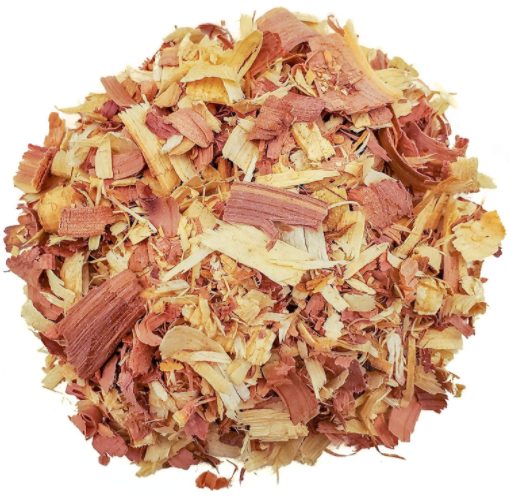
Wood mulch includes bark mulch, softwood mulch, and hardwood mulch. These are the byproducts of the paper and lumber industry. It is dried and aged mulch.
Hardwood is best for perennial beds, shrubs, and trees. By the same token, softwood is good for large shrubs and trees.
Wood mulch decomposes in 2-3 years.
Straw Mulch
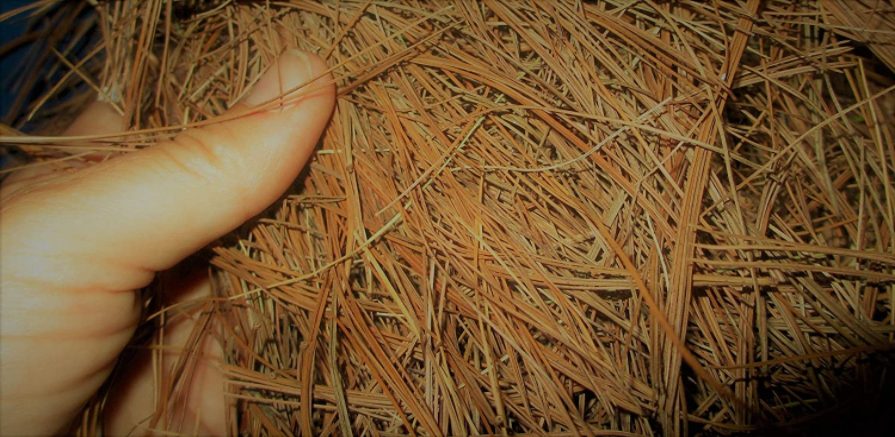
For newly seeded lawns, light mulching is done and straw mulching is best for it. Barley, oat, and wheat straws are used for this purpose.
Additionally, straw mulch keeps the seed in its place and prevents it from washing away.
It also helps in moisture retention, prevents evaporation, and makes moisture available for plant use. Henceforth, it is more effective for rainless areas.
Don’t confuse straw with hay as hay induces weed growth.
Straw mulch is decomposed in 3-4 months.
Leaf Mulch and Grass Clippings
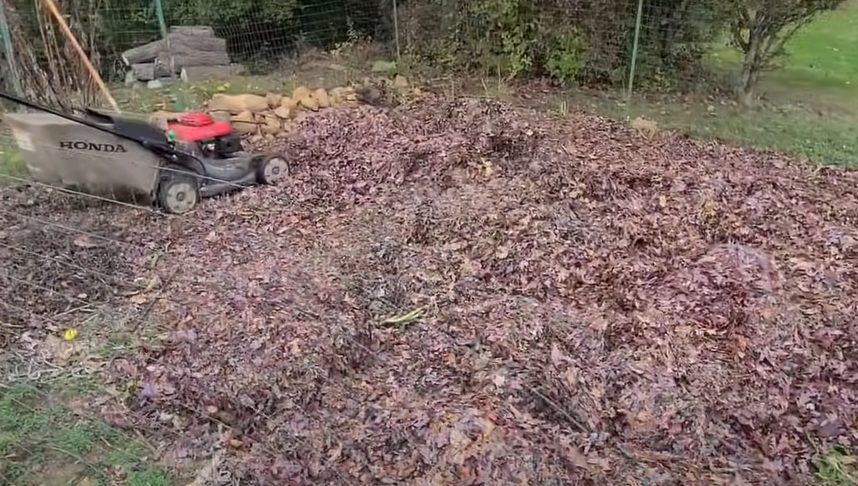
Leaf mulch works great in garden beds and around trees while grass clippings are spread in vegetable and perennial beds in the form of a thin layer.
It prevents weed growth as it acts as an insulation material.
Above all, leaves contain 2 percent of nitrogen so by providing leaf as mulch, you are providing nitrogen as fertilizer for your lawn.
Leaf mulch is decomposed in 6 months.
Newspaper or Cardboard Mulch
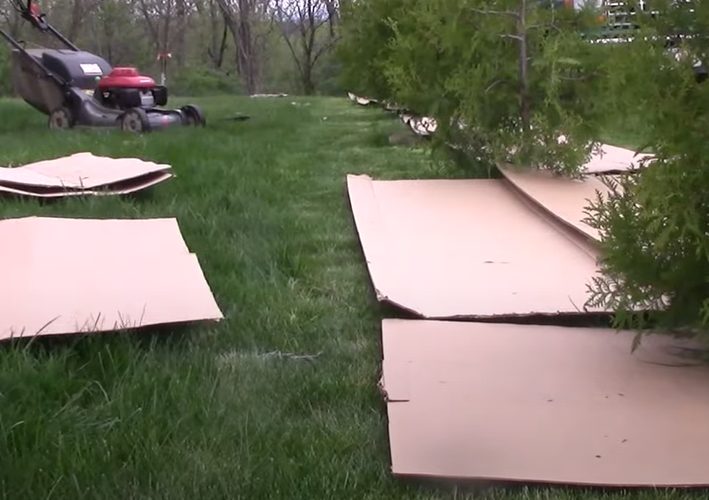
It acts as a weed suppressant. It is a lightweight mulch so it is needed to be covered with another organic mulch.
Colored newspapers should not be used as they release toxic chemicals into the soil.
Cardboard mulch adds organic materials to the soil thus improving its quality. Likewise, it saves water in the soil.
This mulch lasts for three months.
Cocoa Chips Mulch
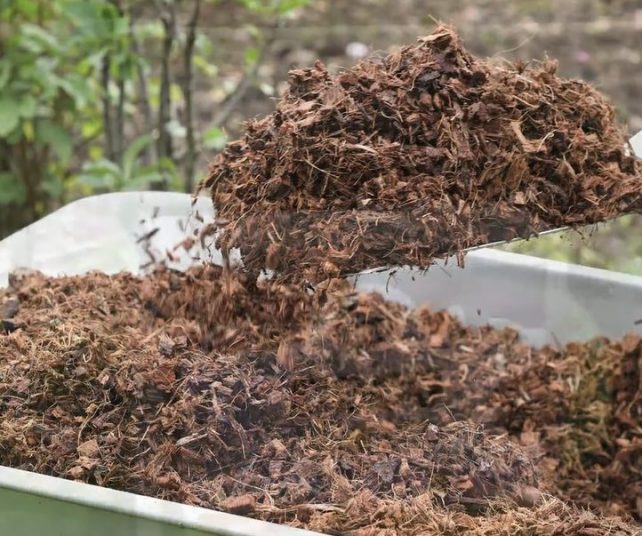
Cocoa chips are lightweight and suitable for all planting areas.
They are decomposed easily and help in preventing weeds. Furthermore, it helps in moisture retention.
A point often overlooked is cocoa chips should be avoided if you have pets because if consumed they can be harmful to animals.
Cocoa mulch is decomposed within 2-4 years.
Inorganic Mulch
Rock Mulch
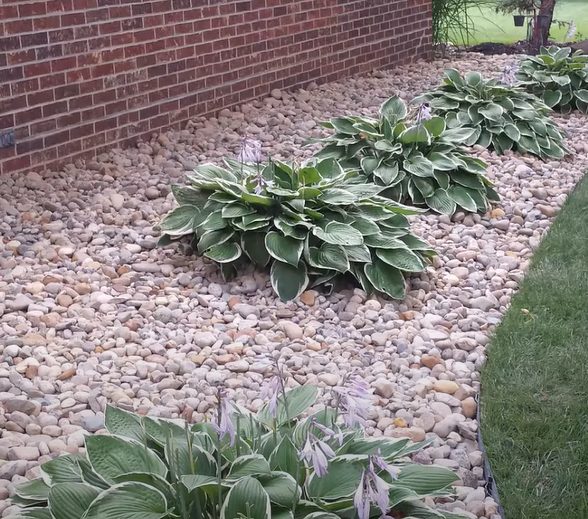
Rock mulch is perfect for walkways and pathways. In fact, all you need is a one-time investment and labor and it lasts for years and years.
It can not be used around trees and plants because it can cause heat stress and burn roots.
It is used for decorative purposes and is best to use around the house.
Plastic Mulch
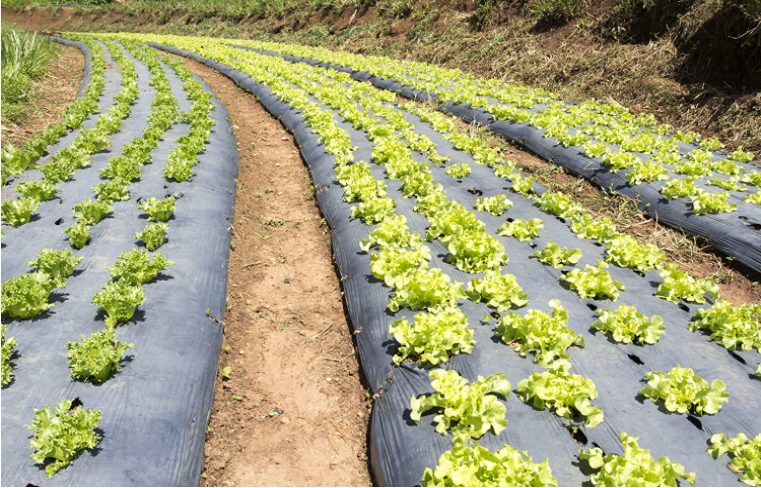
It is impermeable mulch which means that it does not allow water and air to pass through it.
It is suitable mulch for short-term use as it prevents the growth of weeds.
However, landscape fabric is a good choice for long-term use. Water and air can be passed through it.
Plastic mulch can take almost 300 years to decompose.
Rubber Mulch
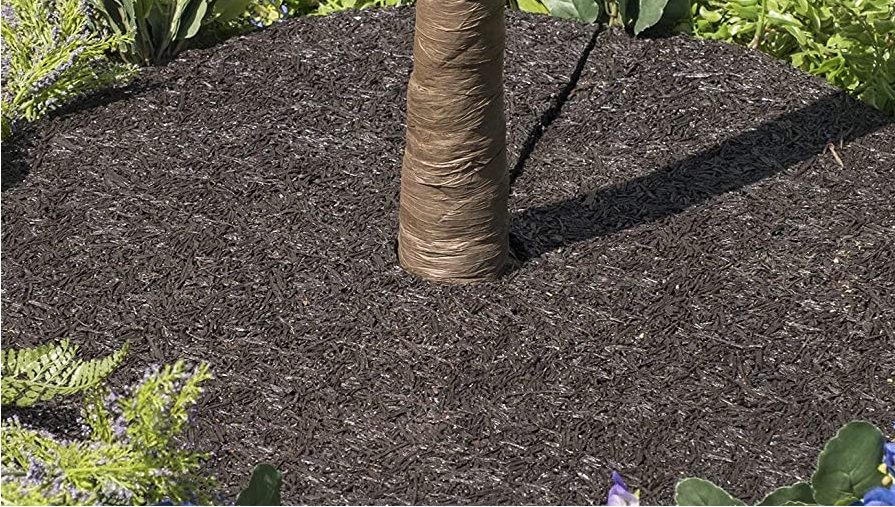
Rubber mulch is beneficial for soil moisture as water can not pass through it. Rubber is a non-porous mulch. For this reason, it can be used in playgrounds.
It prevents weed growth, fungus growth, and plant growth.
It is not decomposed early. It surprisingly takes almost 50 years for the decomposition of rubber mulch.